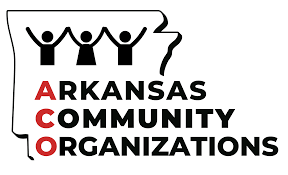Community Organizing for Social Justice
Community organizing is a powerful tool for driving positive change and advancing social justice initiatives. By bringing people together around common causes and issues, communities can amplify their voices and work towards creating a more equitable and inclusive society.
The Importance of Community Organizing
At the heart of community organizing is the belief that collective action is essential for addressing systemic injustices and promoting meaningful change. By mobilizing individuals within a community, organizers can leverage their shared resources, skills, and experiences to challenge existing power structures and advocate for marginalized groups.
Key Principles of Community Organizing
Effective community organizing is guided by several key principles:
- Inclusivity: Ensuring that all voices are heard and valued, particularly those of marginalized individuals and communities.
- Empowerment: Equipping community members with the knowledge, skills, and resources needed to advocate for themselves and others.
- Collaboration: Fostering partnerships and alliances with like-minded organizations to maximize impact and reach common goals.
- Sustainability: Building long-lasting movements that can adapt to changing circumstances and continue advocating for social justice over time.
Strategies for Effective Community Organizing
To effectively organize communities for social justice, organizers often employ various strategies, including:
- Campaigns: Developing targeted campaigns to raise awareness, mobilize support, and influence decision-makers on specific issues.
- Civic Engagement: Encouraging community members to participate in civic activities such as voting, attending public meetings, or contacting elected officials.
- Educational Initiatives: Providing workshops, trainings, and resources to educate community members about their rights and how they can advocate for change.
- Digital Advocacy: Leveraging online platforms and social media to amplify messages, connect with supporters, and organize virtual actions.
The Impact of Community Organizing
Community organizing has the potential to create lasting impact by challenging systemic inequalities, amplifying marginalized voices, and driving policy changes at local, national, or even global levels. Through collective action and solidarity, communities can address root causes of social injustices and build a more just society for all.
In conclusion, community organizing plays a vital role in advancing social justice by empowering communities to come together, advocate for change, and create a more equitable world. By embracing principles of inclusivity, empowerment, collaboration, and sustainability—and employing effective strategies—communities can drive meaningful progress towards a fairer society for everyone.
Uniting for Justice: The Power of Community Organizing
Challenges of Community Organizing for Social Justice: Division, Burnout, Opposition, and Resource Limitations
- Division within the community due to differing opinions and priorities.
- Burnout among organizers and volunteers from the demanding nature of community organizing work.
- Resistance or opposition from those in power who may feel threatened by grassroots movements.
- Limited resources and funding constraints that can hinder the effectiveness and sustainability of social justice initiatives.
Strength in Numbers
Strength in Numbers: Community organizing harnesses the collective power of individuals who share common values and objectives, magnifying their ability to effect change and make a meaningful impact on social justice issues. By uniting people around a shared cause, community organizing empowers individuals to amplify their voices, pool their resources, and leverage their collective influence to advocate for systemic change and create a more equitable society. In essence, the strength of community organizing lies in its ability to bring together diverse perspectives and experiences under a unified vision, demonstrating that when people come together in solidarity, they can achieve far more than they could alone.
Empowerment
Empowerment is a fundamental pro of community organizing for social justice. By engaging in organized efforts, community members are equipped with the tools, knowledge, and support needed to advocate for themselves and others effectively. This process fosters a sense of agency and ownership over social justice issues, enabling individuals to take meaningful action and drive positive change within their communities. Empowered individuals not only amplify their voices but also inspire others to join in collective efforts towards creating a more equitable and inclusive society.
Diverse Perspectives
Community organizing for social justice offers the significant advantage of embracing diverse perspectives. By actively including voices and experiences from various backgrounds, communities can ensure that a wide spectrum of viewpoints is taken into account when tackling social injustices. This inclusivity not only enriches the dialogue but also leads to more comprehensive and effective solutions that resonate with a broader range of individuals. By valuing and incorporating diverse perspectives, community organizing fosters a more holistic approach to addressing systemic inequalities and promoting lasting positive change in society.
Collective Action
Through collective action, communities can address systemic inequalities more effectively than individuals acting alone. By uniting around shared goals and pooling their resources, community members can amplify their impact and bring about meaningful change on a larger scale. Collective action allows for the mobilization of diverse perspectives, talents, and experiences towards tackling entrenched social injustices that may be too complex or pervasive for individual efforts to overcome. Together, communities can challenge existing power structures, advocate for marginalized groups, and work towards building a more equitable and inclusive society for all.
Long-lasting Change
Community organizing for social justice offers the significant advantage of fostering long-lasting change. By establishing sustainable movements rooted in community engagement, organizers can effectively challenge entrenched power structures and push for policy reforms that address systemic inequalities. This proactive approach not only creates immediate impact but also sets the stage for enduring transformations that can positively influence society for years to come.
Division within the community due to differing opinions and priorities.
One significant con of community organizing for social justice is the potential for division within the community stemming from differing opinions and priorities. When individuals or groups hold varying beliefs or goals regarding social justice issues, conflicts can arise that may fragment the unity and effectiveness of the organizing efforts. Disagreements on strategies, tactics, or the prioritization of certain issues can lead to internal tensions, hindering collaboration and diluting the collective impact that a united community could otherwise achieve. Managing these divisions requires careful communication, conflict resolution skills, and a commitment to finding common ground amidst diversity to maintain cohesion and progress towards shared social justice goals.
Burnout among organizers and volunteers from the demanding nature of community organizing work.
One significant con of community organizing for social justice is the prevalent issue of burnout among organizers and volunteers due to the demanding nature of the work involved. Organizing efforts often require long hours, emotional labor, and sustained commitment, which can take a toll on individuals’ mental and physical well-being. The pressure to address complex social issues and navigate challenging circumstances can lead to exhaustion, stress, and feelings of overwhelm among those dedicated to driving positive change through community organizing. Addressing burnout and prioritizing self-care are crucial aspects that organizers must consider to sustain their passion and effectiveness in advocating for social justice causes.
Resistance or opposition from those in power who may feel threatened by grassroots movements.
Resistance or opposition from those in power who may feel threatened by grassroots movements is a significant con of community organizing for social justice. When marginalized communities come together to demand change and challenge existing power structures, it can provoke backlash from individuals or institutions that benefit from the status quo. This resistance may manifest in various forms, such as attempts to discredit organizers, suppress dissenting voices, or undermine the legitimacy of grassroots movements. Overcoming this obstacle requires resilience, strategic planning, and solidarity within the community to navigate and counteract the pushback from those who seek to maintain their positions of privilege and authority.
Limited resources and funding constraints that can hinder the effectiveness and sustainability of social justice initiatives.
Limited resources and funding constraints pose a significant challenge to the effectiveness and sustainability of social justice initiatives through community organizing. Without adequate financial support, organizers may struggle to mobilize community members, implement impactful campaigns, or sustain long-term advocacy efforts. These constraints can limit the reach and impact of social justice initiatives, hindering the ability to address systemic injustices and create lasting change within communities. Finding creative solutions to resource limitations and securing sustainable funding sources are essential for overcoming this con and ensuring the continued success of social justice endeavors through community organizing.




